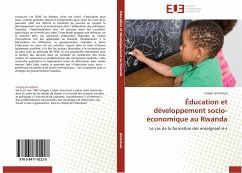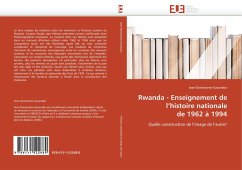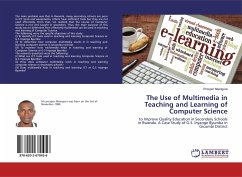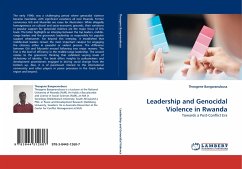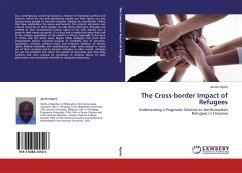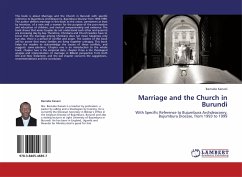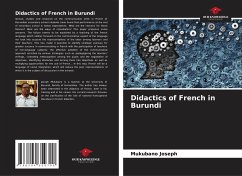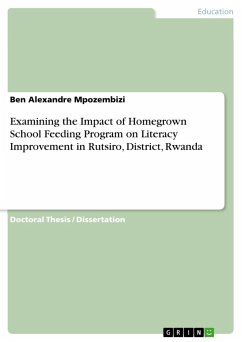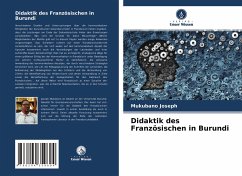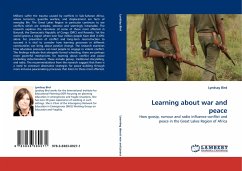
Learning about war and peace
How gossip, rumour and radio influence conflict and peace in the Great Lakes Region of Africa
Versandkostenfrei!
Versandfertig in 6-10 Tagen
52,99 €
inkl. MwSt.

PAYBACK Punkte
26 °P sammeln!
Millions suffer the trauma caused by conflicts in Sub-Saharan Africa, where terrorism, guerrilla warfare, and displacement are facts of everyday life. The Great Lakes Region in particular continues to see conflicts which are complex, extreme and seemingly intractable. The research explores the narratives of some of those most affected in Burundi, the Democratic Republic of Congo (DRC) and Rwanda. Yet the world ignores a region where over four million people have died in DRC alone. For prevention of conflict and long-term reconstruction to succeed it is vital to consider how learning processes ...
Millions suffer the trauma caused by conflicts in Sub-Saharan Africa, where terrorism, guerrilla warfare, and displacement are facts of everyday life. The Great Lakes Region in particular continues to see conflicts which are complex, extreme and seemingly intractable. The research explores the narratives of some of those most affected in Burundi, the Democratic Republic of Congo (DRC) and Rwanda. Yet the world ignores a region where over four million people have died in DRC alone. For prevention of conflict and long-term reconstruction to succeed it is vital to consider how learning processes in different communities can bring about positive change. The research examines how educative processes can lead people to engage in violent conflict. The findings indicate that alongside formal schooling, there are perhaps more powerful mechanisms for learning about conflict and peace (including indoctrination). These include gossip, traditional storytelling, and radio. The recommendations from the research suggest that there is a need to construct alternative strategies for peace building through more inclusive peacemaking processes that listen to those most affected.




